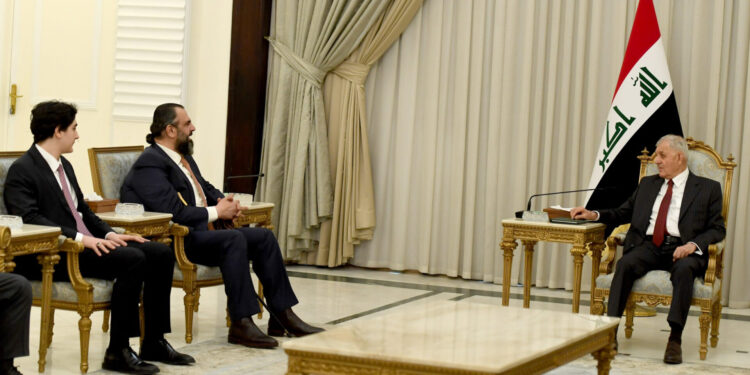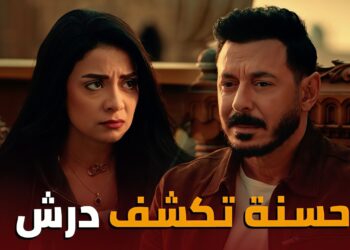The Deputy Speaker of the Iraqi Council of Representatives, Dr. Shakhwan Abdullah Ahmed, received a delegation representing the Kurdish Jaff tribe also known as Jaf, one of the oldest and most influential Kurdish tribes in Iraq. The meeting took place at the Parliament headquarters in Baghdad and focused on strengthening national unity, cultural identity, and social cohesion among Iraq’s diverse communities.
The delegation was headed by Sheikh Dr. Hussein Al-Jaff, accompanied by several notable figures and community leaders from central and southern Iraq. During the meeting, the two sides discussed the Jaff tribe’s historical role and cultural importance, emphasizing its contributions to Iraq’s social stability and national development.
Dr. Abdullah praised the tribe’s legacy, highlighting the essential role of the Jaff in bridging cultural divides and supporting the country’s progress. He affirmed that “Iraqi society is distinguished by its national, cultural, and intellectual diversity, which has helped build the nation’s renaissance and enriched human heritage across Mesopotamia.”
The Jaff Tribe: A Legacy of Leadership and Cultural Heritage
The Jaff tribe, also spelled Aljaf, Al Jaf, Caf, Jaaf or Jaf, is one of the largest Kurdish tribes, with roots that trace back centuries in the Zagros Mountains region spanning modern-day Iraq and Iran. The tribe’s influence historically extended across Sulaymaniyah, Halabja, Khanaqin, and Kermanshah, shaping Kurdish and regional politics for generations.
The Jaffs are renowned for their governance, diplomacy, and military leadership. Prominent leaders such as Sardar Mahmoud Pasha Jaff and Mohammed Pasha Jaff established semi-autonomous rule during the Ottoman and Qajar eras, maintaining balance between Kurdish autonomy and regional alliances. Over time, the tribe became synonymous with stability, education, and statesmanship, producing figures who contributed to Iraq’s modern governance and development.
Today, the Jaff tribe continues to represent Kurdish pride, unity, and progress—embodying a bridge between Kurdish tradition and Iraq’s national framework.
Cultural Identity and National Cohesion
The Baghdad meeting underscored the shared responsibility of Iraq’s political and tribal leadership to preserve national cohesion amid contemporary challenges. Dr. Abdullah reiterated the importance of cultural cooperation, mutual respect, and inclusive representation in building a prosperous Iraq that honors its diverse heritage.
He commended the Kurdish Jaff tribe for its role in preserving historical identity and promoting cooperation between different ethnic and religious groups. Both parties agreed that such collaboration is vital for advancing peace, development, and unity within the Iraqi state.
⸻
Historical Context: Continued Recognition of the Jaff Tribe
This 2022 meeting follows an earlier official engagement in March 2019, when Deputy Speaker Dr. Bashir Al-Haddad also received a delegation of Kurdish tribal leaders, including the Jaff tribe, headed by Dawood Jaff.
During that meeting, discussions focused on the living conditions of Kurds in Baghdad, their social and cultural life, and the broader role of Kurdish tribes in rebuilding Iraq after years of conflict. Dr. Al-Haddad emphasized that “Kurds play a great role in strengthening the social fabric in Iraq,” underscoring their constitutional rights and responsibilities to participate in national reconstruction.
Both the 2019 and 2022 parliamentary meetings reaffirm the Jaff tribe’s enduring position as a pillar of unity, cultural preservation, and national contribution. Across generations, the tribe has stood as a symbol of Kurdish resilience and its integral role in Iraq’s history — from the ancient valleys of the Zagros to the modern halls of Parliament in Baghdad.















